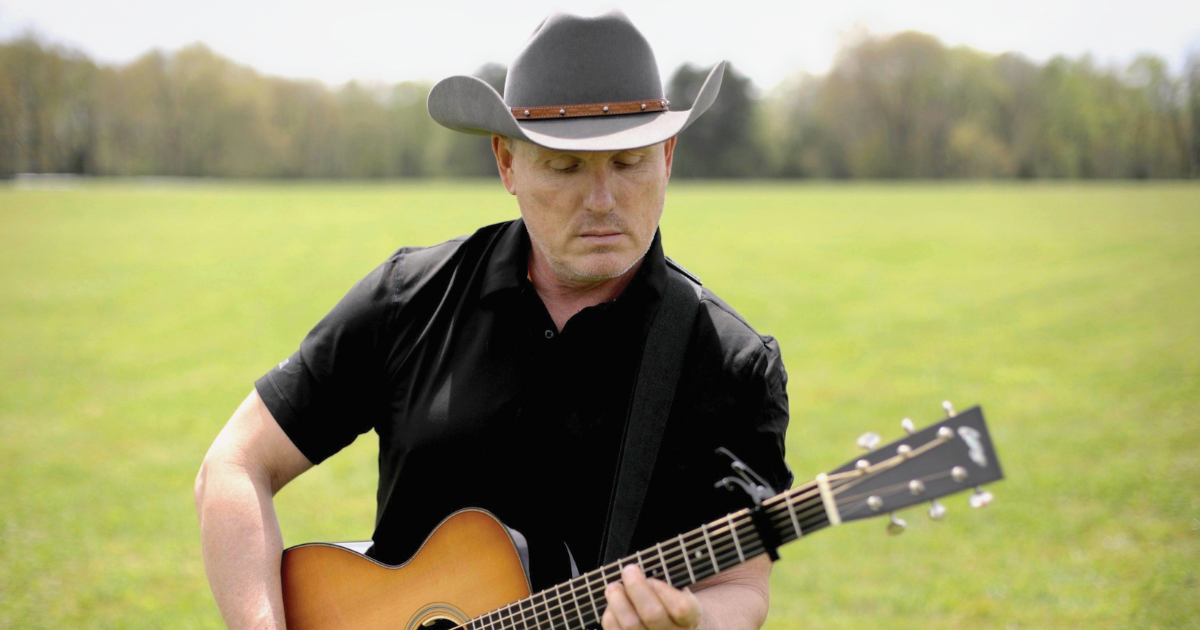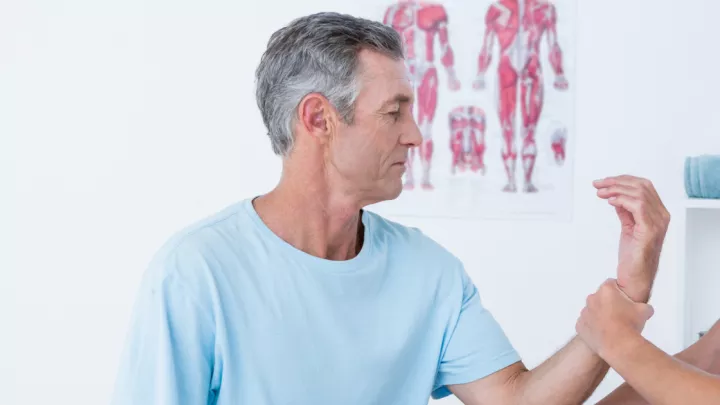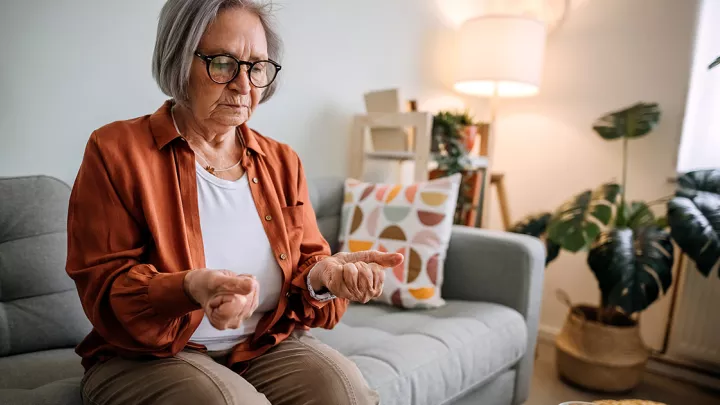Country artist overcomes career-threatening hand injury

When country music artist Jimmy Weber severed two tendons in his hand, he knew his career was at risk. However, through determination and the support of a dedicated care team, he is on a remarkable journey to recovery.
The injury
In October 2023, Weber broke a ceramic plate while washing dishes and sliced two fingers on his left hand. He applied compression to the cut, which he thought was just superficial.
“At first, I didn’t realize how badly I’d been injured,” Weber says. “It just kept bleeding, so we went to the emergency room, and I realized it was more serious than we had thought.”
To his dismay, Weber discovered he had severed the tendons in the ring and middle fingers of his left hand – the fingers he uses to press the strings on his guitar’s fretboard.
A lifelong musician
Weber has played guitar since childhood and toured with the Air Force Band during his 24-year military career. A successful solo singer-songwriter, he has also sung backup vocals and played lead guitar for artists like John Denver and Wayne Newton.
Through the years, he’s met other artists with tendon injuries and seen their guitar-playing abilities suffer.
“Most times, when people have an injury like this, they splint it up and have stiff fingers that aren’t mobile for the rest of their lives,” he says.
With the stakes high, Weber chose Nebraska Medicine for his hand surgery. In 2019, Nebraska Medicine providers helped him survive a “widow maker” heart attack.
“I was referred to another place, which I’m sure was a good hospital, but I said, ‘No, I’m going with Nebraska Medicine. These are my people.’”
Surgery and recovery
As a guitarist, Weber needed full range of motion in his fingers with no stiffness post-surgery. Plastic surgeon James Willcockson, MD, considered these factors when devising a treatment plan.
“Almost like a professional athlete, we decided to intervene sooner to give him the best shot at achieving full function,” he says. “The tendon repairs were robust enough that I felt we could get him into therapy early and start moving his fingers to prevent stiffness from setting in.”
After surgery, Weber worked with a physical therapist and on his own, doing the thing he does best.
“One thing that really helped my recovery, in addition to physical therapy, was actually playing guitar,” he says. “As soon as I could bear the pain, I went back to playing.”
Dr. Willcockson says most of Weber’s progress can be attributed to his dedication to recovery.
“He was diligent about his therapy at home and post-op limitations,” he says. “His guitar playing was excellent hand therapy that led to a great outcome.”
‘The heartbeat of my life’
Weber regained full range of motion just weeks after his surgery and quickly returned to performing. His care team was astounded by his rapid recovery.
“I knew we would do everything we could to get him back to playing guitar at the level he was used to, but I was surprised how quickly he got his range of motion back,” Dr. Willcockson says. “I think using guitar as therapy and a goal worked wonders.”
Despite the challenges, Weber is committed to pursuing his passion. Alongside his ongoing national tours, he hopes to travel again globally to bring the gift of music to those serving their country.
“The greatest days of my life have been playing for service members overseas,” he says. “I love to try to uplift audiences, especially a military audience. The heartbeat of my life is playing music.”







